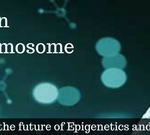Health information technology, like so many fields within information technology, is growing, broadening and deepening as technology and health care continue to merge and evolve.
One of the most essential specialties of health IT is called health information management, or HIM.
HIM involves acquiring, protecting and analyzing medical information in both digital and traditional formats. In a contemporary health care setting, the HIM professional has to maintain current training in the latest IT applications. Beyond that, he or she needs to understand the workflow in all kinds of health care organizations, from private practices to major hospitals. The goal is to manage costs by eliminating unnecessary medical expenditures, such as redundant tests, while improving patient care.
It’s virtually required that HIM professionals have a degree in healthcare informatics or healthcare information technology. Some information technology positions may accept applicants with just an associate degree, but a master’s degree is usually required for management positions. Work environments include hospitals, nursing homes, insurance firms, and pharmaceutical companies.
Even with an associate degree, HIM offers opportunities in private practice, insurance companies, hospitals and a variety of other environments. An associate degree will give the prospective HIM professional the tools to function as a bridge between clinicians, payers, regulators, patients, consumers and technology.
With a bachelor’s degree, graduates should have the knowledge to pass the Registered Health Information Administrator certification exam, and all the necessary professional knowledge, skills and competencies fundamental to the health information management profession.
At the graduate level, courses provide broad technical skills as well as the organizational skills required for senior-level positions. Students will learn how to acquire, store and interpret information of interest to healthcare professionals; integrate electronic medical records with patient care and provide a higher quality of care through better management and availability of medical information; develop and assess the tools used to represent medical data; define medical language and classification systems; comply with laws and regulations applicable to managing patient information; and evaluate ethical issues.
The variety of possible work environments comprises almost any institution or facility that deals with patients. The list of job titles under the HIM umbrella is just as varied. Positions include electronic health records manager; medical records auditor, analyst, or compliance officer (who ensure that health care providers are in compliance with various regulations); coding specialist; cancer registrar (who maintains cancer-related records, from demographic information to diagnosis and treatment); and electronic health records developer and analyst (who designs electronic medical records systems, from conceptualization to implementation).
The field is growing so quickly that demand for some positions in some areas it outpacing supply. Some schools are reporting 100 percent employment for recent graduates, even with just associate degrees.
Ron Vatalaro works at Bisk Education with USF Health Morsani College of Medicine at the University of South Florida and Jacksonville University and writes about health informatics. Ron holds an advanced degree in Business Administration with a concentration in technology.

























